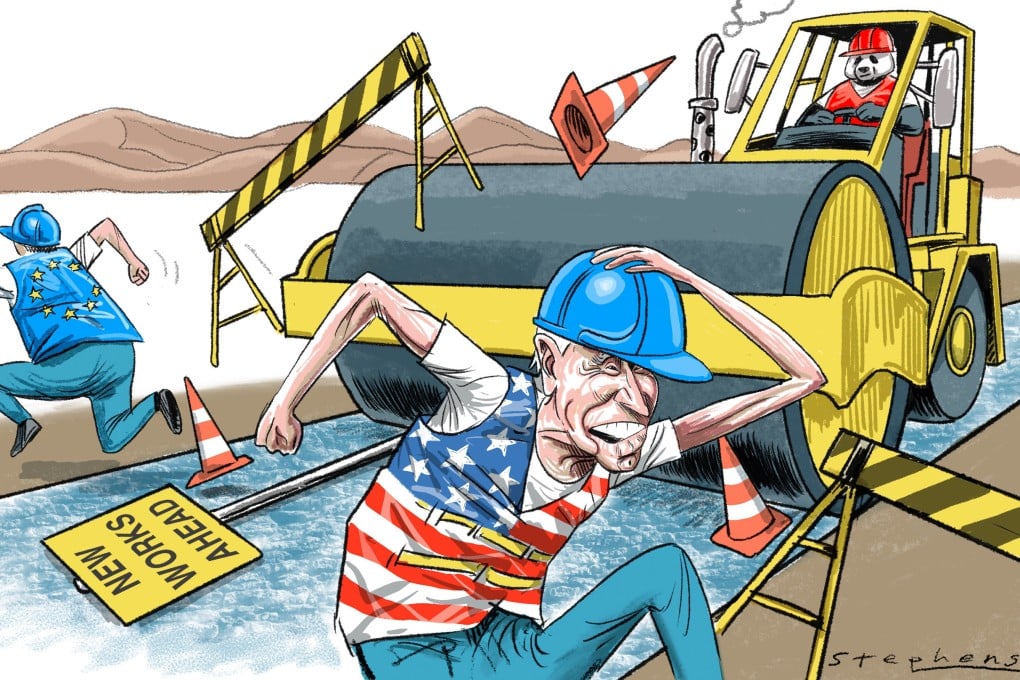Opinion | Why the West’s attacks on China’s Belt and Road Initiative are futile
- China’s infrastructure initiative has attracted criticism and inspired a cacophony of competing plans, including the G20’s economic corridor
- But fundamental needs are getting lost in the rush to conjure up new visions, which has added to global tensions – without denting the belt and road’s popularity

Yet the new corridor would cross routes already considered part of the belt and road and has created tensions among Group of 20 members. The race to tout new routes and connectivity continues to generate spurious comparisons while missing the actual impact (if any) of the projects.
China was not the first country to put forward the concept of infrastructure connectivity. In 1993, the EU linked up with newly independent countries across the Caucasus and Central Asia to create the Transport Corridor Europe Caucasus Asia. The Asian Development Bank also has the Central Asia Regional Economic Cooperation Programme to foster connectivity between China and its Eurasian neighbours.
Going back further, the idea of an “Iron Silk Road” was first posited in the 1960s through the United Nations to create a rail link from Singapore to Turkey.

